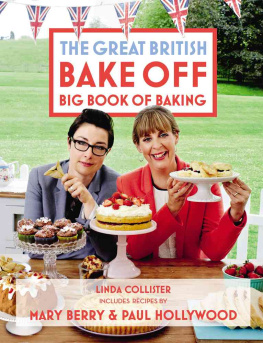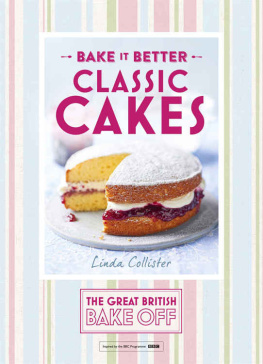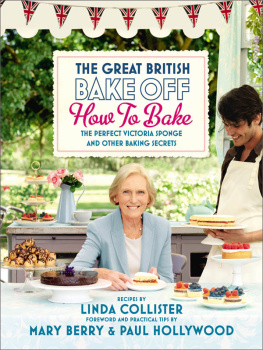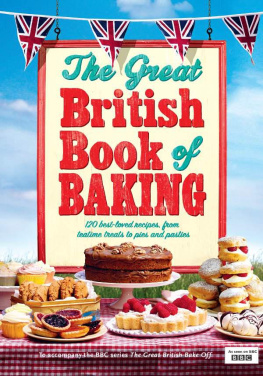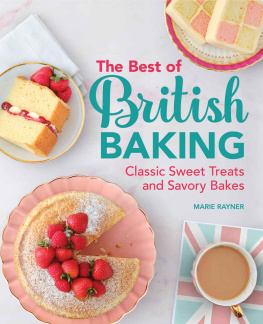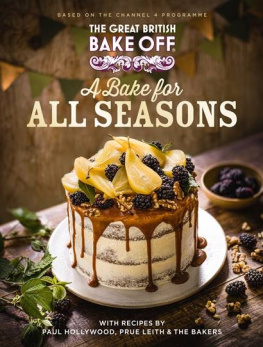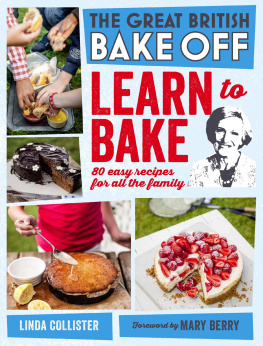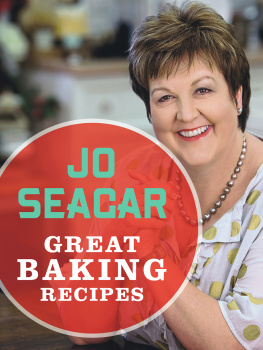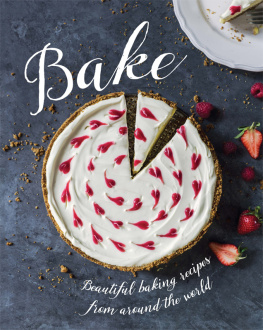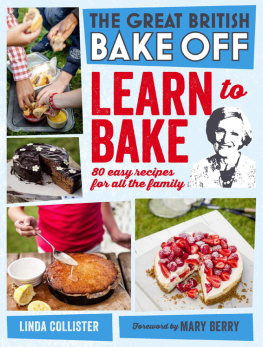Contents
Our Mums are two of the finest bakers we know. Ann Perkinss Lemon Drizzle Cake, partnered with a cup of Earl Grey, is one of the finest fits since Ray Alan put his hand up Lord Charles. Its so good that, for a brief moment when she serves it, youre transported from a Croydon semi-detached to a Sicilian citrus grove. Sadly, once its finished, youre transported back again. Rosemary Giedroycs Upside-Down Ginger Pudding is not only a feat of engineering but dances on the tastebuds like a spicy Fred Astaire. Before you enquire, the recipe is a family treasure; youd sooner break Colonel Sanders into revealing his secrets than Mrs G.
Neither parent was Cordon Bleu-trained, neither learned their skills from the forty-three thousand hours of cookery programmes littering the television schedules each and every week. They learned how to bake from watching their Mums, certainly, but most importantly, they learned through trial and error and they learned on the job. Just ask our Dads, who have developed cast-iron constitutions as a result...
Since mankind discovered fire, weve been trying to perfect what we cook with it; from the chewy Beltane loaves of Iron Age man to the semolina-crusted sourdoughs of the modern artisan baker. Baking runs in our blood, its as quintessentially British as football and disappointment. Whats sad is that we have started to lose our basic baking skills; instead choosing to waste our cash on mass-produced cakes, pastries and biscuits from the supermarkets. We are part of this generation, who turned away from the wholesome and homespun in pursuit of all things easy and processed; so much so, weve all but forgotten what a really good, home-cooked sponge in all its buttery glory tastes like.
But times are thankfully changing, and now many of us, ourselves included, are running back to the floury arms of our ancestors, begging for forgiveness. There is regret, of course. Why did we not watch our Mums more closely as they pored over their Be-Ro cookery cards? Why did we never learn how to roll out, fold over, crimp, prink and bake our own pasties? Why didnt we write down Grannys recipe for vodka scones? But all is not lost. Thankfully there are thousands of extraordinary men and women (a lot of them in their twenties and quite the little saucepots) who have retained and developed these skills, and who can pass the seeded baton on to us. Thanks to them, Sue can now bake a fourteen-tiered classic wedding cake and Mel is the proud owner of several icing bags.
So next time you fancy something sweet, eschew the vacuum-packed, flavour-enhanced pallor of the supermarket muffin and whip up something awesome yourself. Its fun, its therapeutic, and when you get it right it can make you very, very popular with friends, family and prospective in-laws.
Lets get Britain home-baking again. It might still be naughty, but its a hell of a lot nicer.



in the summer of 2010, ten home bakers took part in The Great British Bake Off, a Love Productions series for BBC2. Each week, the series explored a different part of our great baking heritage and along the way featured some of the wonderful people keeping these traditional skills alive.
In each place from Scone in Scotland, to Sarre in Kent and Mousehole in Cornwall the bakers were set challenges by The Great British Bake Off judges, Mary Berry and Paul Hollywood. Throughout the book youll come across recipes from the home bakers each marked with a steaming teapot.




This country has a strong baking heritage dating back hundreds, even thousands, of years and during this time many changes have taken place, from the evolution of ovens to modern milling techniques. The home baker today has everything needed to produce a perfect loaf, cake or scone, and the experience of baking for the first time is something never to be forgotten and is much talked about!
There are a number of points the home baker needs to take note of before starting to bake at home. Whether the recipe is a family one, borrowed from a friend or from a recipe book, the ingredients must be looked at carefully. Never put an ingredient into a bake that you dont like and follow the recipe to the letter until you become familiar with it. Then you can add your own touches.
My second point about baking is your oven. Ovens nowadays have many settings and can overcomplicate an otherwise simple procedure. I would recommend that most baking be done in the middle of your oven, as this is where an even temperature is achieved. Temperature is the key. A longer bake should be baked at a lower temperature, a shorter bake at a higher temperature. This will ensure that your Victoria sponge stays moist!
The third, and probably the most important, rule is consistency. There may be a problem following a recipe because different flour brands will require more or less liquid to attain the ideal consistency. This is where my experience as a baker has been of great benefit. I rarely follow a recipes liquid content: instead, I will use touch to determine whether the mix is correct or not. My point is, when baking at home, initially follow the recipe: try it, and, if you feel its too wet or dry, alter the mix the next time you make it, taking careful note of the brand of flour used.
An organized kitchen when baking is an absolute necessity. Clear the tops of anything that may find its way into your mix a clean kitchen generally means a good finished product!
Baking can be fun for all ages. My son Joshua, aged eight, is an avid pizza-base maker, while my mother-in-law bakes bread and cakes for grateful grandchildren. My advice to you is to start making bread at home first, because creating a great loaf builds confidence and spurs you on to other baking delights. Bread is particularly good for understanding the liquid content in doughs, as it allows you to feel the dough between your fingers.


